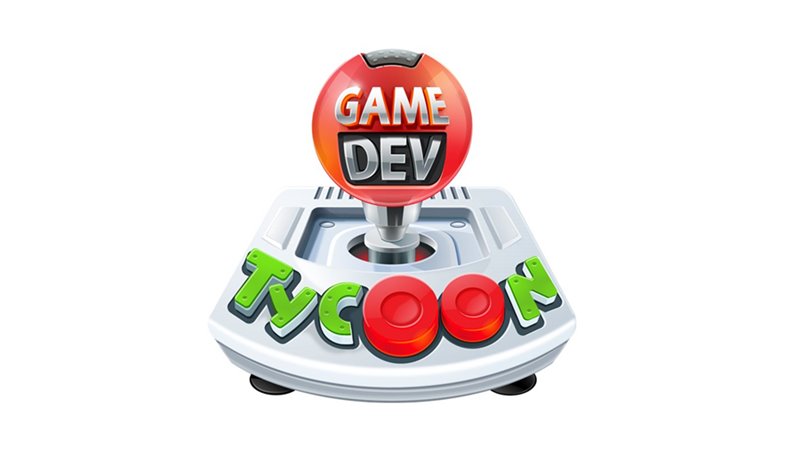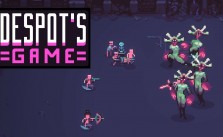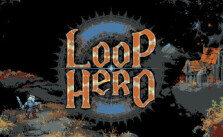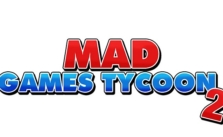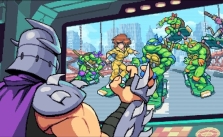11 New Player Tips for Game Dev Tycoon
Hey there, new game developer!
Ready to enter the exciting (and occasionally chaotic) world of game development? You’d better be because we’ve got a killer collection of top tips to get you going in Game Dev Tycoon! This sweet list of 11 inside secrets helps brand-new players obtain the essential information they need to start building a virtual game development empire.
Just remember to hold on tight to your sense of humor and make sure your mind remains in open mode because—as all experienced game developers know—the road to success is bound to be bumpy at times. These tips have got you covered, though, so keep them handy.
Start with small-scale projects and emphasize polish
As a newcomer in Game Dev Tycoon, it’s tempting to let your imagination run wild with ambitious ideas for massive, intricate games. However remember that as a fledgling developer, it’s best to start small and focus on producing high-quality, polished games. This approach will help you establish a strong reputation and draw in more players, thereby providing the resources and expertise needed to tackle larger ventures down the line.
Plan strategically and concentrate on building your resources & skills
To unlock new offices and research in the game, you need to meet certain requirements like earning enough money, hiring staff, or developing specific skills. To achieve these goals, plan and manage your resources carefully while improving your skills over time.
One way to do this is by creating high-quality games that players and critics love. This will help grow your reputation and fan base, leading to more income and resources for your business. Another approach is to keep track of the requirements and work towards meeting them actively. For example, if you know that you need to reach 3D Graphics V5 level 4 to unlock 3D Graphics V6, focus on building your skills in that area and aim to reach that goal.
Steer clear of monotonous game genres and themes
Avoid specific actions that can negatively impact your games’ success. Here are a few things to sidestep:
Developing consecutive games with identical genres/topics. Though it may be alluring to stick with what you know, it’s crucial to vary your approach and experiment with new ideas to keep players engaged. Releasing too many similar games may risk alienating your audience or failing to captivate their interest.
Launching a sequel/expansion within a year. While it’s vital to capitalize on your games’ success, allow players ample time to savor and thoroughly explore your existing titles before unveiling new content. Releasing new content too hastily may risk diluting the impact of your previous games and potentially alienating your audience.
Producing large games with 2D Graphics V3 or lower or 3D Graphics V2. To create high quality games that appeal to a broad audience utilize the most cutting-edge graphics technology available. Developing large games with outdated graphics technology may hinder your ability to achieve the visual polish and immersion that players expect, which can hurt your games’ success.
Creating an AAA game without 3D V6. Similar to the point above, use the most advanced technology at your disposal when developing high-profile games. Attempting to develop an AAA game without the most advanced graphics technology may hinder your ability to achieve the visual polish and immersion that players expect, which can hurt the success of your game.
Take on contracts to supplement your income and manage your budget
It’s crucial to carefully manage your budget and consider the costs associated with developing and releasing games. However, contracts can offer a helpful source of additional income, helping to offset some of these expenses.
Upon completing a contract, you can earn a substantial sum of money, often exceeding $20,000. Be aware tho that accepting contracts doesn’t guarantee success, and failing to complete a contract may result in a penalty of around $8,000.
To optimize your chances of success with contracts, start with smaller contracts that pay less, as they are more likely to be completed successfully. Even if these smaller contracts don’t provide a significant cash infusion, every dollar counts and can help offset some of the costs associated with game development.
Pay attention to player feedback
Player feedback is crucial to your games’ success. Be sure to listen to what players say about your games and use that feedback to refine and enhance your future projects.
Focus on the PC platform early in the game for success
You might be drawn to creating games for cutting-edge gaming platforms as soon as they hit the market. However, remember that licensing fees for these platforms can pack a hefty price tag, and it’s not always the wisest financial move.
A tip for boosting your success in the game is to keep it simple. One approach is to start by developing games for the PC platform, which offers a relatively low licensing fee and a fairly steady market share. This strategy lets you save more cash and establish your studio’s reputation before branching out to other platforms.
That’s not to say you should entirely ignore other platforms. As you advance in the game, you might find that crafting games for specific platforms aligns with your studio’s goals & resources. Just make sure to evaluate the costs & benefits before deciding and don’t hesitate to stick with what works best for you.
Don’t neglect marketing
Marketing plays a crucial role in GDT, as it amplifies the “hype” surrounding your games. The more hype you generate, the higher your initial sales will be when your game launches. That’s why it’s critical to set aside funds for marketing endeavors like advertising & PR. Participating in the G3 event can also help create buzz for your games.
As you progress in the game and unlock AAA game development, you can delegate marketing tasks to your research team throughout the entire development process. However, be aware that buying additional marketing won’t push your hype beyond the maximum limit. For instance, purchasing large marketing followed by small marketing won’t further increase the hype. Also, remember that the development stage at which you promote your game doesn’t matter; as long as you advertise before completing the game, you’ll always receive the maximum hype for that marketing tier.
It’s wise to evaluate which marketing type suits specific game sizes best. For instance, “magazines” campaigns might be a good fit for small games, while “magazines & demos” campaigns could be more effective for “publishing deal” games. As your games grow in scale and intricacy, you may want to explore higher-tier marketing options. However, investing in large campaigns may not be necessary until you’ve delved into multi-platform games.
Focus on building and improving your own game engine
In Game Dev Tycoon, one approach to ensuring your games stay relevant and competitive is to focus on constructing and refining your proprietary game engine. While building and maintaining your engine might come at a steep cost, it offers several advantages.
First, developing your own engine allows you to integrate new features and technologies as you research and unlock them. This grants you a wider array of options for your games, including save game functionality, online multiplayer, immersive narratives, and open-world gameplay. Features like these can entice players and help your games stand out from the pack.
Second, crafting your own engine can also enhance the technical prowess of your games. Reviewers may highlight technical advancements, such as superior graphics, which can contribute to your games’ overall success.
Even when working with older technology, it’s vital to inject fresh, new elements into your games. Doing so can sustain players’ interest and keep your games competitive. Ultimately, building & upgrading your game engine can be a worthwhile investment in your game development studio’s long-term success within Game Dev Tycoon.
Consider incorporating trends into your development strategy
Trends represent random occurrences throughout your career that sway player preferences for specific game types. These trends can encompass a blend of game topics and genres or hone in on a particular genre or parental rating.
While it’s not mandatory to ride these trends, giving them a shot can pay off. If your game excels during an active trend, you could potentially rake in a more substantial profit. However, keep in mind that chasing a trend doesn’t guarantee a home run.
As you move forward in the game, a news report might inform you that a trend has fallen out of favor, and the market has reverted to its usual state. At this juncture, feel free to resume your standard game development tactics.
Don’t forget to check the Game History tab
It’s not difficult to miss the Game History tab, tucked away at the bottom of the menu with little bearing on the gameplay experience. However, when juggling multiple games, it’s an invaluable tool for tracking the themes and genres you’ve employed.
As you continually craft new games, recalling the exact mix of genre & theme for previous creations can be a challenge. This is where the Game History tab shines. By referencing this tab, you’ll effortlessly review the chronicle of games you’ve designed, along with their associated themes and genres. This prevents inadvertently repeating a combination, as you’ll maintain a record of your previous selections.
Caring for your team
The well-being and drive of your team are crucial to your studio’s triumph. Prioritize the happiness & motivation of your team members by investing in training and research to keep their skills current. Consider bringing on new talent to address specific needs or broaden your studio’s potential. Moreover, distribute tasks evenly among team members and offer ample support to enable them to deliver their best work.

